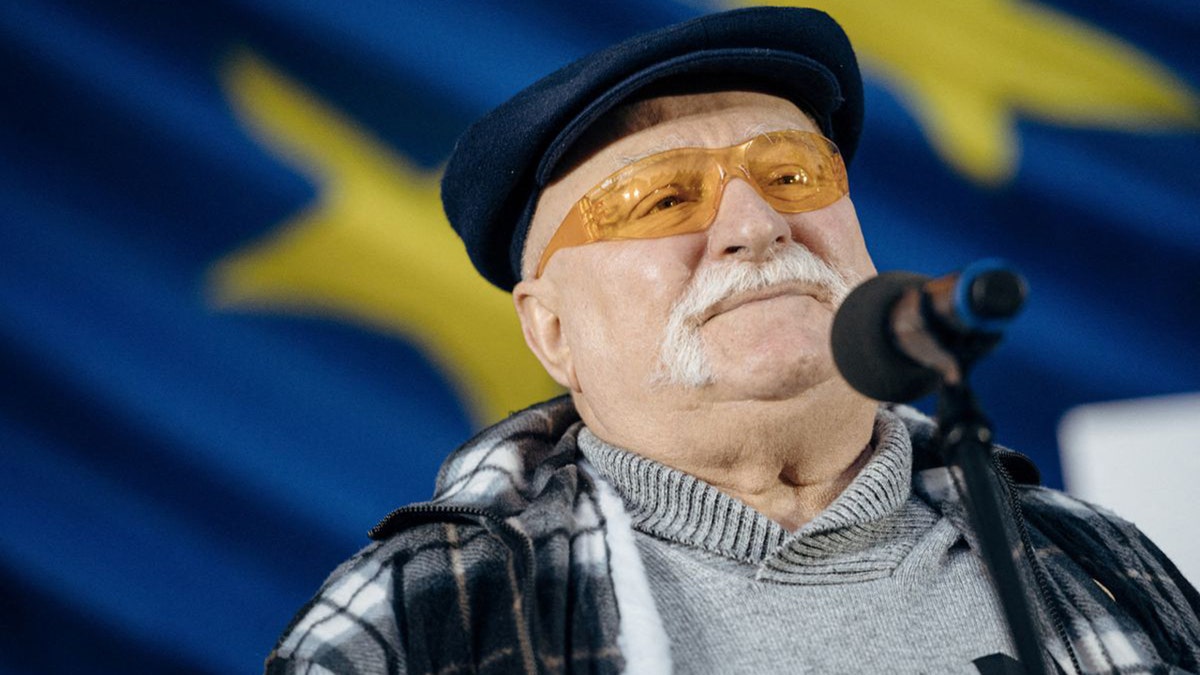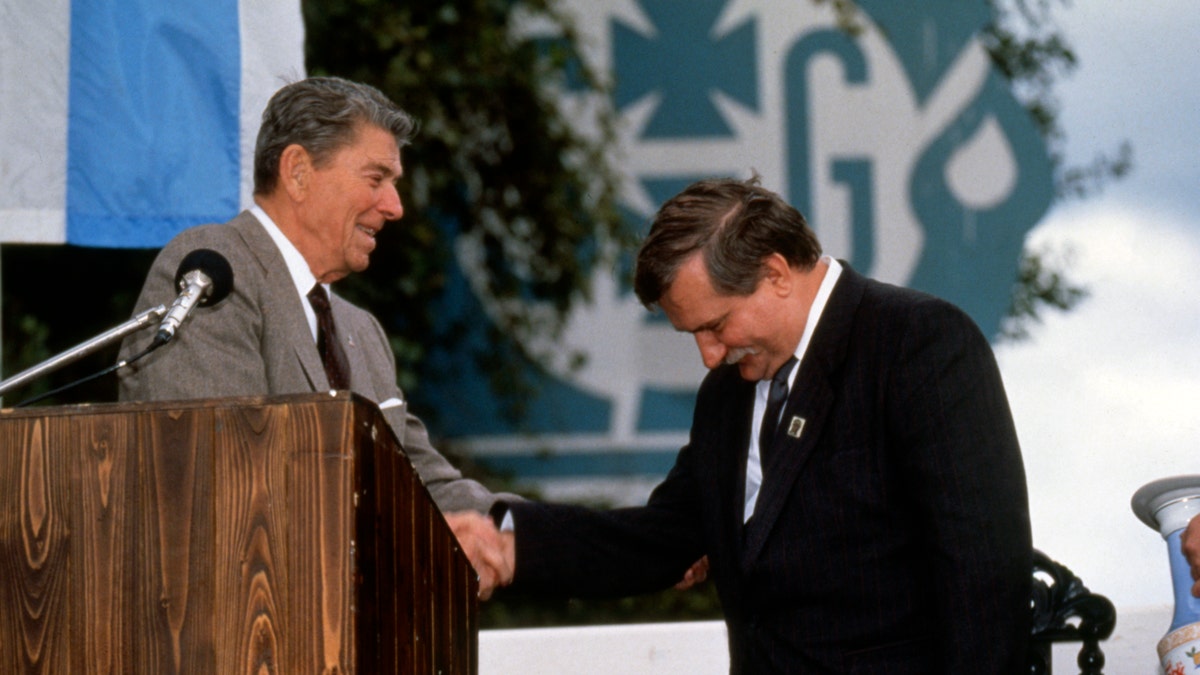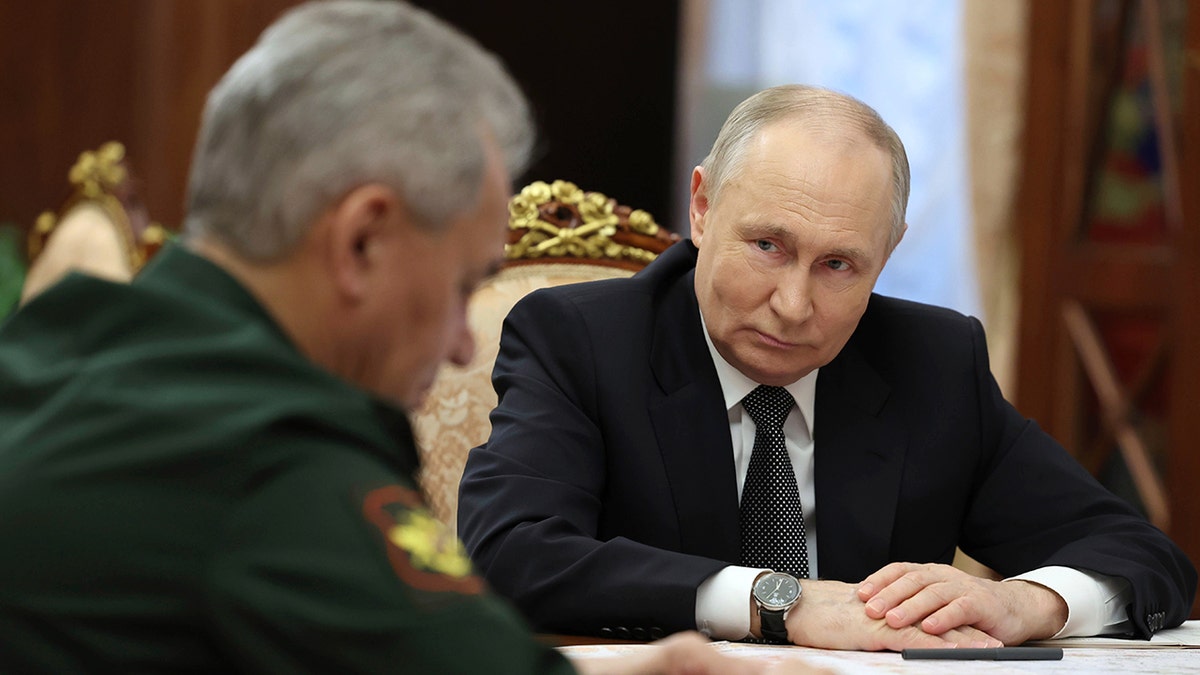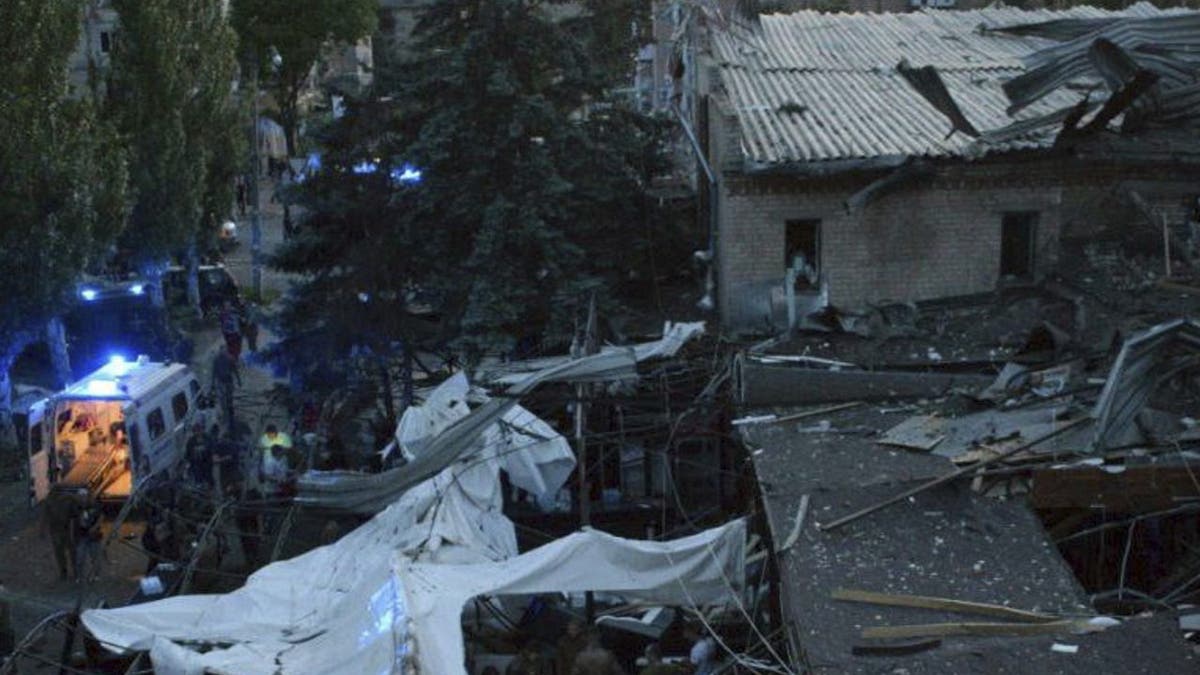Some GOP lawmakers making 'America First' argument for additional Ukraine aid
Fox News chief national security correspondent Jennifer Griffin breaks down why some GOP lawmakers are behind spending more taxpayer dollars on the Ukraine war effort on 'Special Report.'
As Russia’s full-scale invasion of Ukraine approaches its second anniversary, and with Ukraine's aid package stalled in Congress, the man who became the symbol of fighting for freedom against the former Soviet Union is urging the U.S. to deal with Russia "once and for all."
Nobel Peace Prize winner and former Polish President Lech Walesa exclusively spoke with Fox News Digital about Russia's invasion of Ukraine and why the U.S. and the West need to support Ukranian President Volodymyr Zelenskyy.
Fox News: Mr. President, you have been advocating for Ukraine from the beginning of Russia's full-scale invasion. What exactly did you ask American lawmakers to do?
Lech Walesa: In [the] late '80s I led a big revolution in Poland, and that led to the end of communism and the Soviet Union. We did this to build a new world, but we did not finish our job in regards to Russia and China, we were too weak to do it. Forty years later, the time has come to finally finish the job, and I am here to encourage the United States to help. That's what I am trying to explain to my American friends.

Former Polish President Lech Walesa attends a rally in support of Poland's membership in the European Union in Gdańsk, Poland, on Oct. 10, 2021. (Bartosz Banka/Agencja Gazeta via REUTERS)
Fox News: In 1989, when you spoke in front of the U.S. Congress, among other things, you asked for economic aid for Poland. And in that speech, you said, "In peacetime, it's better than tanks, better than warships." Did you ever imagine that 40 years later there would be a war going on in Europe?
Walesa: Yes, I imagined it, and I warned everybody about it. At the time, we believed Mikhail Gorbachev [the last leader of the Soviet Union] too much. He was doing great things, but we forgot that he was a Russian patriot. He was trying to build back Russia and get the West to rely on Russia more. The U.S. has a historic chance to make amends now. The world has never been as united against Russia as today. We have a chance for peace, so that our grandchildren do not have to fight.

Former President Reagan, left, and Lech Walesa at Varsovie, Poland, in September 1990. (Georges de Keerle/Gamma-Rapho via Getty Images)
Fox News: You are one of the first foreigners who was not head of state by the time you addressed the Congress in 1989. Two years later, Boris Yeltsin spoke at Congress as Russia’s first elected president. Back then, the U.S. was optimistic about Russian democracy. Do you think Russia can be a democracy any time soon?
Walesa: If we offer solidarity and the U.S. is able to lead the world, this will happen. My question is, when will this happen? And what will be the price?

Russian President Vladimir Putin, right, listens to Russian Defense Minister Sergei Shoigu during their meeting at the Kremlin in Moscow on Tuesday. (Alexander Kazakov, Sputnik, Kremlin Pool Photo via AP)
Fox News: You were friends with President Ronald Reagan. How do you think he would react to American foreign policy of today?
WALESA: Well, Reagan started these processes. It's difficult to imagine things moving further without Reagan. That's how the epoch of the bad divides in the world ended. That stage, we have won. But today, we are not winning. It is becoming more and more dangerous. That's why I would like to convince the U.S. to take charge of the world.
IRAN DELIVERS HUNDREDS OF BALLISTIC MISSILES TO RUSSIA AS UKRAINIAN DEFENSE FALTERS
Fox News: While you are here, the Republican Party is divided over Ukraine aid. What would you say to Republicans who are holding up the funding process?
Walesa: I would tell them to listen to old Walesa. If we don't act now, we will lose.
Fox News: What happens to Ukraine if it does not receive the help it needs?
Walesa: It won't just be Ukraine that is affected. The United States will be in danger. Russia wants to attack the U.S. Right now it's too weak to do so, but if it is let to defeat Ukraine, the U.S. will be next. So, it is in the interest of us all, including the U.S., to deal with Russia once and for all.

People clear the rubble in a restaurant destroyed by a Russian attack in Kramatorsk, Ukraine, on June 27, 2023. (National Police of Ukraine via AP)
Fox News: When you talk to American politicians, do they share your concerns?
Walesa: They do not fully understand the danger that they're faced with.
Fox News: We have elections coming up here, the implications of which will go further than the United States. Are you worried about our presidential elections?
CLICK HERE TO GET THE FOX NEWS APP
Walesa: I am worried. We haven't noticed that we live in a time where epochs are changing. Solutions from old times do not fit current issues. We found ourselves in a time of word discussion and what the world is supposed to look [like]. We need countries who are ready to lead, take charge and help create solutions. But, instead, we are constantly late with solutions.
This interview has been edited for length and clarity.










































